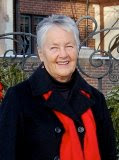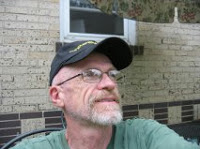Edward F. Printz, III, something I never expected of a person from a western
Kansas farm. I knew him as Ted. Of course he drove a tractor, but he also sang
at school, was the drum major for the high school band, and by the time I met
him he’d been hired as the music director for our little college. My last
semester there Ted led the choir I sang in and taught me vocal technique. I
learned so much from him.
heard “queer” as an old fashioned word one of my grandmother’s used with some
regularity, I knew in a flash that Ted would be interested to do some of the sexual
things that I also would be interested to do had I not got married a year and a
half before meeting him. I really liked his buoyant and outgoing personality
and hoped he would never ask me to do those interesting things with him. I knew
I would not ask him to do them with me. Still I realized that we were much the
same and came to understand that sameness to be gayness. I picked up the gay
word from reading a book in the school library, a sociological study that along
with its main topic defined some common gay male words. I learned more about
this world of gay and found myself interested, oh so interested.
compelling need to enter that world but still was curious. Ted and I became life-long
friends. He became a regular visitor in our home after I graduated. Since we
had moved to the city where his voice teacher lived, Ted visited us some
weekends. One summer while he was in graduate school and lived with us, Ted
served as tenor soloist in the Chancel Choir I directed. Our friendship became
more complex. The relationship between the ever-teacher Ted and the
ever-student Phil endured until Ted’s death on his 47th birthday, April 29,
1994. Eventually I did enter Ted’s gay world. I lived as an openly gay man and
dedicated my fifteen years of massage work with HIV positive persons to his
memory. And I recall his wisdom and humor almost daily.
time writing, painting, and socializing. In general, he keeps busy with groups
of writers and artists. Following thirty-two years in church work and fifteen
in a therapeutic massage practice, he now focuses on creating beauty. He
volunteers at The Center leading the SAGE program “Telling Your Story.”




